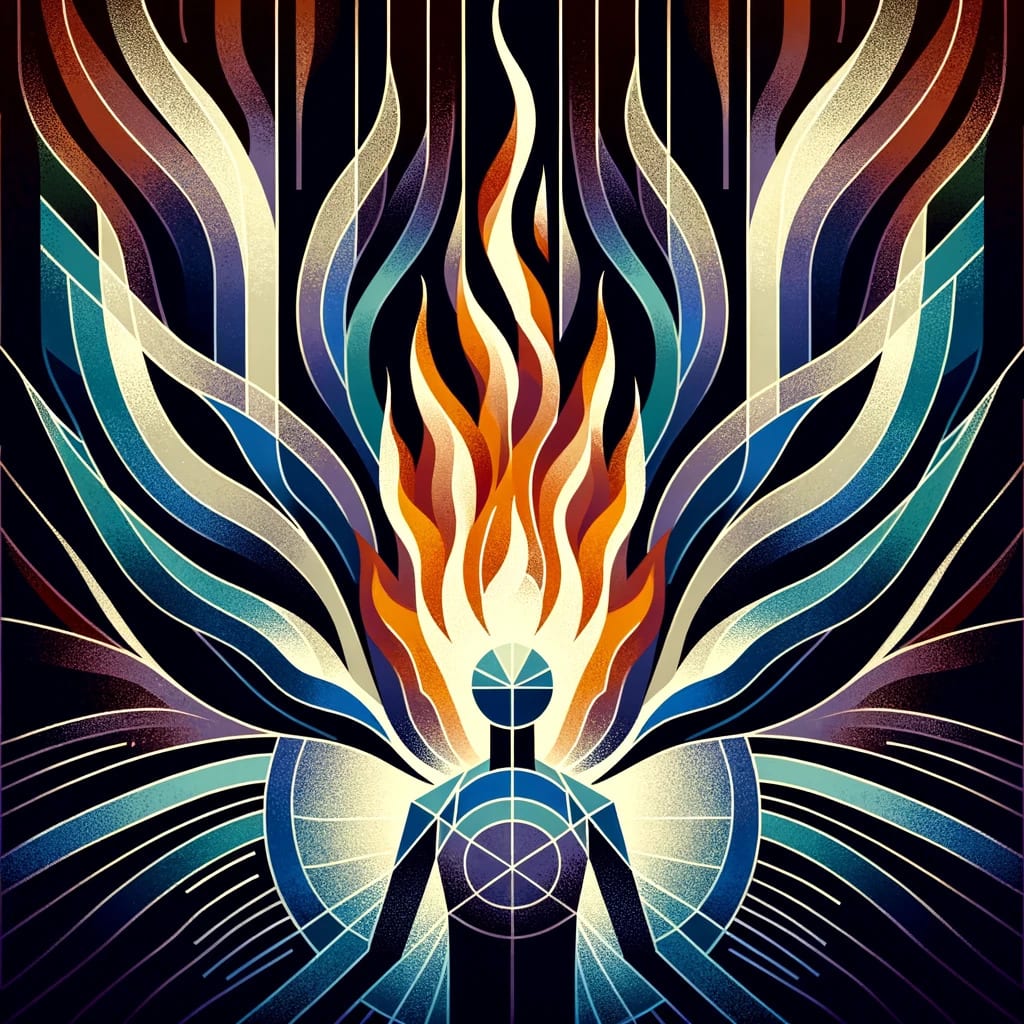A Fiery Call To Conscience:
Aaron Bushnell’s Self-Immolation

As I immerse myself in the harrowing tale of Aaron Bushnell, the US airman who ignited his own body in front of the Israeli embassy in Washington D.C., something frightening consumes me. His self-immolation, a violent outcry against what he perceived as complicity in genocide, makes me question our collective complacency, my complacency.
But what compels an active military member of the US Air Force to such a drastic act of self-harm, to thrust his suffering into the public eye with an act he knew would demand attention? No doubt, stories will begin to circulate on what may have been attributed to it. We may blame the pervasive neglect of mental health concerns within our armed forces or a broader societal indifference that allows such extremes to manifest. We will examine the psychological toll that leads to such extreme measures, yet the act of leaving a suicide note with the last words “Free Palestine” while enduring the agony of burning flesh elevates it to another plane. This level of sacrifice should prompt us to question our numbness, especially in the face of a genocide endured by 2.3 million Palestinians in Gaza and the collective punishment inflicted upon tens of thousands in the West Bank. Perhaps the sheer magnitude of suffering — the bombs in crowded areas, the plight of hostages, the innocence of thousands of infants — renders mere statistics irrelevant.
In the aftermath of this chilling choice of death, Bushnell’s final words — “Free Palestine” — linger in the air like an unspoken prayer, prompting us to delve deeper into the profound significance of this impassioned plea. What does it truly mean to “free Palestine,” and why must we all grapple with this moral issue as a collective human race?
Gaza and the West Bank with its besieged inhabitants living under the oppressive boot of Israeli control, serve as a poignant microcosm of the dystopian societies that should haunt our collective consciousness. Their plight forces us to confront the unsettling reality that the specter of dystopia is not a distant threat but a chilling presence in our midst.
The perils of our silence, the dangers of granting implicit permission for atrocities to be committed in our names, loom ominously before us. How can we remain indifferent to the cries of our neighbors, to the anguish of children torn apart by the bombs paid for with our money?
Our attention to the Palestinian struggle, whether they remain occupied and at the mercy (or to be accurate the lack of mercy) of the Israeli government and its citizens who still do not think the response is enough, is not merely a matter of geopolitical intrigue — it is a moral imperative that strikes at the very core of our humanity. As we bear witness to the world’s open endorsement of a legitimized form of genocide in the name of “self-defense,” we are compelled to confront the reality of our complicity. Aaron Bushnell knew he would die a painful death, knew it would be unimaginable, and yet lit himself on fire after he left us with the chilling screams of “free Palestine” over and over while he was standing going up in flames.
In drawing parallels with the catalyst of the Arab Spring, Mohamed Bouazizi’s self-immolation, in response to against the corrupt and authoritarian government of Tunisia in December 2010. We are reminded of the transformative power of individual sacrifice. Will Bushnell’s fiery act serve as the spark that ignites a broader movement for change? Was it a message for all of us or did he plant a seed that will grow in the minds and hearts of all active military men and women in our country?
In the end, the message of “Free Palestine” transcends the confines of geopolitics — it is a rallying cry for the salvation of our collective soul, a plea to reclaim our humanity from the abyss. I don’t believe any death is in vain. I don’t believe the thousands of innocent babies and children and lives including Aaron Bushnell will be in vain. Time will unravel and oppressive forces cannot contain people who believe in dying for the greater collective and the freedom of others.
A testament to the indomitable resilience of the human spirit, resistance is infectious. Deeply tragic yet beautiful in its sacrifice. I wonder what haunted Aaron and what was the last straw that forced his self-immolation to be his conclusion on what he could do to stop the bombing of Gaza. I wonder what video or image was the last thing he saw before it broke him.
I wonder how his ending will bring about the freedom of people he never met. I’m afraid to write the words Free Palestine so clearly yet he can calmly walk and pour gasoline all over himself and stay standing while he is burning and screaming “Free Palestine.”
His suicidal yet selfless act serves as a stark reminder of the power of individual agency in the face of entrenched injustice. Begging the question, how uncomfortable are we willing to get to fight back against crimes against humanity?
From the depths of despair, the most vulnerable among us rise, transcending their limitations to stand in solidarity with people they never met and have at least one thing in common, they too are human.
Don’t let Aaron Bushnell’s profound act of solidarity for humanity fade into the background noise of news cycles. As his story trends for the week, let it serve as a stark reminder to reflect on our sense of humanity. In the face of injustice and suffering, may we always strive to uphold the dignity and rights of all people, just as Bushnell did in his final, courageous act.
About the Creator
Maysoon Salah
Human, female and mother.
September26.org






Comments
There are no comments for this story
Be the first to respond and start the conversation.